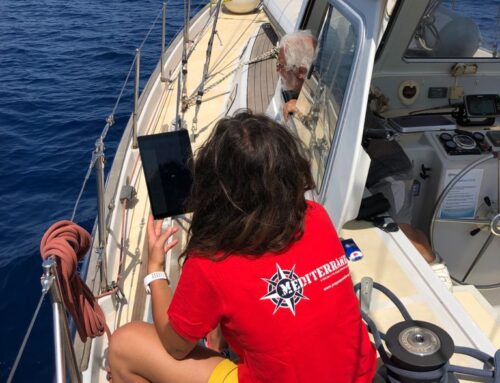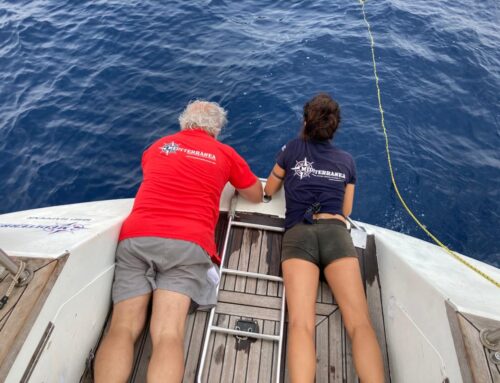(by Simone Perotti)
“Impossible.” The writer, journalist and blogger Ayfer Tuzcu Unsal answers without hesitation when I ask her if there is an emblematic aroma that sums up Turkey. And she answers in the same way when I ask whether there is a taste that encloses the flavours of her country. “Anatolia is a place of transit, a passageway, it always has been. Everyone has left their flavours, scents, feelings and assumptions here. And that is why I love this country so much”.
Who influenced you the most? “Many, very many. Bulgur, for example, is almost certainly Hittite, but it was the Christians who made it their staple diet. So whose is it? Who influenced who? Today it is one of the most typical dishes of eastern Turkey (in the west it is vegetables), but can we can claim it is Turkish? If we consider Turkey as a place of mixed races, yes we can. And what about Kahi, not only is it a Babylonian dish, but also Jewish and Greek, similar to baklava, butis it Turkish? I would rather define it as Mediterranean“.
For days now I have realised that it is almost impossible to define what is Turkish and what is not. Many believe that the greatest influence on this Anatolian culture was that of the Arabs, but Ayfer Unsal has no doubts about this: “No, that is not true.” Anatolia created its own world of flavours, its own sensory pentagram, its own identity, and it did so in the most Mediterranean way possible: by combining diversities. “The Greek, for example, but also the Jewish world. The Ottoman cuisine, that so many speak of … we know nothing about it. In the Palace (editor’s note Topkapi) they did not write recipes, they wrote the ingredients. And indeed, those we know! And from them we can learn a great deal. But we do not have the original recipes of the Ottoman cuisine. What many claim to be Ottoman, as a matter of fact comes from a text of Bagdhad dating to the XIth century, that certainly contains things that concern us, because it refers to a culture of the time which reached us, but it is not a source for Ottoman cuisine. And this, which is considered by everyone as a documentary tragedy, I actually find amazing. A mystery!”
In any case, I try to prise some point of reference from him. I explain to her that Jean-Claud Izzo wrote “Garlic, basil and mint” in an attempt to define the main aromas and flavours of the Mediterranean from the perspective of Marseille, whose greatest poet he is. Looking at the Mediterranean under a Turkish lens, which three flavours would he suggest? This time she is tempted. She thinks about it. And then says: “Red pepper, even if it came from the Americas, red basil, which is from the Aegean area, and mint, which comes from the South-East, where I come from.”
Our conversation becomes animated with references to coriander (“few know this herb and they use it fresh in Turkey, but it is ours as much as other substances”), the eggplant (“that comes from India, but the best are those from the southern shore of the Euphrates, and it is one of our most popular vegetables”) or ghee (” that we make from yoghurt “). “Of course – she says – if I do not relate to others, I will not be learning anything. Many have believed this since the dawn of time, in our Mediterranean”.
In any case, going by what Ayfer says, the heart of Anatolian gastronomy would appear to be the South-East. “Do you known that on the Black Sea we eat raw fish? Not many know that. Marinated anchovies, for example,” and a contamination from the Genoese, who sailed there centuries ago, inevitably comes to mind. “Oh yes Genoa is everywhere here! From Galata Tower which is not far from here, to South West Anatolia, where Genoa is everywhere, in the food, in their speech, in the castles overlooking the sea. Who knows, for example, if “mangiare” (to eat) does not come from pancar (editor’s note pronounced panciar, which means beetroot). Just as the word alic, sounds so much like our “alici” (anchovies), I think.
We also discuss Italian cuisine, which is still not very well-known (“and is also very bad here”), and cookery schools (“the few that there are, are very recent. And I am very critical, because the programs used come from French cuisine, and that makes no sense?! “), and about when she teaches gastronomy to her young people: “They all ask me: ‘how do you make the sauce for this dish?’. But there is no sauce! In Turkey there are no sauces! The sauce is in the recipe. ” Now it is even clearer what he means when she talks about programmes borrowed from the Transalpine cuisine. And I agree with her in full.
We say goodbye with an embrace. The day after tomorrow we will be having dinner at her home. And I am certain that it will be a wonderful evening.






Leave A Comment